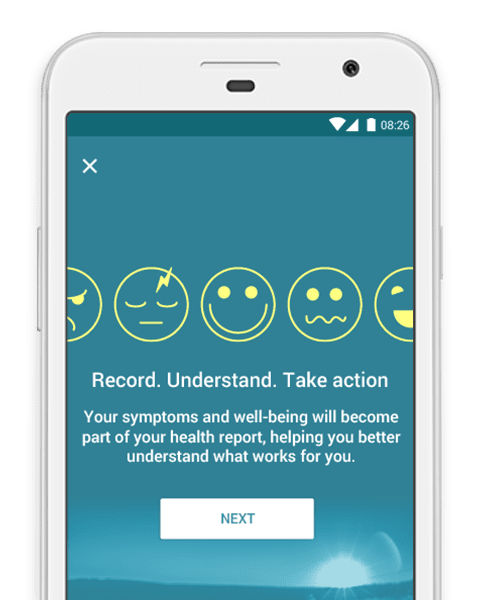As the bell tolls 12 on New Year's Eve, many of us find ourselves making the same resolution for the New Year: to get in shape and lose weight. The most common resolutions made by adults in the US as we head into 2021 are doing more exercise (50%) and losing weight (48%). But how many people manage to stick to their resolutions? It is easy to make a resolution to lose weight and improve your diet, but like most things, it’s easier said than done. Breaking old habits and implementing new ones can be tough, especially if you lack the right advice. If your resolution for 2021 is to improve your diet, but you’re not sure where to start, then you’re in the right place. Keep reading to find out improvements you can make that will help you to reach a healthier weight.
The facts
Good nutrition benefits everybody. Ensuring that you incorporate the right balance of nutrients in your diet is essential for maintaining your physical and mental health. Losing weight can have limitless benefits such as helping to improve your mental health and self-confidence, while helping to prevent the development of serious health problems. There are many serious health problems linked to being overweight such as high blood pressure, strokes, heart disease, diabetes and some cancers. Carrying around excess weight can also lead you to feel excessively fatigued and put strain on your joints, particularly your knees.
Good nutrition plays an important role in the treatment of any disease, and whilst losing weight and improving your diet cannot cure chronic diseases, it is essential to ensure you are providing your body with the resources it needs to maintain energy levels and cope with your condition. If you have a serious health condition that makes losing weight or maintaining a healthy diet difficult for you, then speak to your doctor who will be able to advise you. Do not take any dietary advice provided in this article over advice given to you by your doctor.
The word ‘diet’ often has negative connotations. However, dieting is not bad, provided you do it safely and for the right reasons. The key is to make small changes and improvements and be patient. Trying to make drastic changes straight away will be very difficult to maintain and will not be effective in the long-term. A steady weight loss of 1 to 2 pounds per week is recommended for the most effective long-term weight management. The aim is to reduce your appetite and improve your metabolic health.
Advice for losing weight
Cut back on carbohydrates and replaced them with whole grains
By reducing your intake of refined carbohydrates you’ll burn stored fat for energy, reduce your hunger levels and lower your insulin levels. Examples of whole grains include barley, brown rice, whole oats, buckwheat, and quinoa.
Eat protein, fat, and vegetables
Protein can be a great replacement for carbohydrates because it makes you feel full and satisfied. Eating protein is essential to maintain health and muscle mass whilst losing weight and also helps to boost your metabolism. The average male needs 56-91 grams of protein per day, while the average female needs 46-75 grams. Good sources of protein include salmon, trout, egg, beans, pork, chicken, lamb, beef, legumes, quinoa, and tofu.
People generally assume that all fat is bad, however, your body still requires healthy fats to function properly. Some examples of foods that contain healthy fats are olive oil and avocado oil, as well as eggs, cheese, and nuts. Fatty products such a butter should be used in moderation due to their high saturated fat content.
Vegetables are packed with nutrients but don’t include many calories which means you can eat loads of them without worrying that you’re consuming lots of calories. Green leafy vegetables such as spinach are also excellent sources of iron if you don’t eat red meat. Vegetables that have a particularly low carb and calorie content are broccoli, cauliflower, spinach, tomatoes, kale, cabbage, lettuce, and cucumber.
Exercise
Frequent exercise helps you to lose weight and burn the calories you are consuming. Exercise also helps promote mental well-being and has been proven to provide relief from stress and anxiety. It’s important to note that doing daily exercise doesn’t mean that you don’t have to watch what you’re eating. A combination of exercising and maintaining a healthy diet is the most effective way to lose weight.
Weightlifting burns a lot of calories without slowing down your metabolism. Going for a fast-paced walk or a run is also a great way to burn some calories as well as getting some fresh air. If the pandemic has affected your exercise routine and prevented you from going to the gym, try downloading a fitness app for effective at-home workouts. Remember that anything is better than nothing. If you're not used to frequent exercise, setting yourself the goal of doing an hour of hard-core exercise a day is quite ambitious. Instead, try and incorporate small amounts of physical activity into your daily routine. As your start to lose weight and your fitness levels increase, you'll find you can manage more challenging workouts.
Reduce alcohol intake
Alcohol not only contains lots of ‘empty calories’ (calories that provide very little nutritional value), but drinking alcohol also decreases your metabolism. Excessive alcohol consumption can lead to what is known as alcoholic fatty liver. This condition can damage your liver, affecting the way your body metabolizes and stores carbohydrates and fats.
Eat a good breakfast
Some people try to lose weight by skipping breakfast or lunch. This is not advisable because it leaves you feeling hungry and dissatisfied, and then compensating for this hunger by eating larger portions at dinner. It can also slow down your metabolism. Instead, try making time in the mornings to prepare a nutritional, high-energy breakfast such as porridge with fruit and nuts, or a protein-filled breakfast involving egg and meat. This will reduce your cravings and help to maintain your energy levels throughout the day.
Drink lots of water
Studies have shown that water can help you lose weight because it is a natural appetite suppressant, as well as helping with calorie burning and the removal of waste from your body.
Eat slowly
When you’re hungry and you sit down to a plate of food, it can be tempting to gobble it all up quickly. However, chewing your food properly and eating more slowly can help you to lose weight. This is because after a meal your gut releases fulness hormones which tell your brain that you have eaten, and in turn, lower your appetite. Eating more slowly allows more time for your brain to receive these signals since the process takes about 20 minutes.
Get a good night’s sleep
Studies have shown that people who sleep between six and eight hours a night have a greater chance of achieving their weight-loss goals. If you are not sleeping well and are under stress, then sticking to a weight loss program will be more difficult. For advice on coping with tiredness and getting a better night's sleep, click here.
Avoid emotional eating
It is common to seek comfort from food during difficult times. With all the stress, anxiety and boredom that the pandemic has caused, it's not surprising that many people have found consolation in snacking and indulging in comfort food. Whilst a hearty meal on a bleak winter's day can definitely lift your spirits, it's important to make sure you're not relying on food to quell anxiety, stress or boredom. Try to find healthier ways to deal with these feelings such as practicing yoga, listening to music or ASMR, taking a hot bath, or reaching out to friends and family. If you find yourself over-eating to cope with feelings of depression, click here for more advice.
Reduce portion sizes
It is often the case that people will eat until they have cleared their plates to avoid waste, rather than when their bodies tell them they’ve had enough. It is important to listen to your body and not push yourself to eat any more once you feel satisfied. Constantly eating until you are very full can make your stomach expand, increasing your appetite. A way to avoid this is to use a smaller plate when you eat to control your portion sizes.
Plan your meals
A great way of ensuring that you incorporate plenty of fresh food into your diet and balance the right nutrients is planning your meals. It is tempting after a busy day at work to get home and throw a few ready meals into the microwave because it is convenient and requires minimal effort. Putting together a weekly meal plan and ensuring you stock the right ingredients ahead of time can help you to prepare daily nutritious meals with minimal hassle. People are less likely to eat healthily where hassle is involved, so making an effort to be more organized and downloading a meal planner will make you much more likely to stick to a healthy eating routine.
Monitor your progress and involve family and friends
Tracking and sharing your progress is a great way to keep yourself motivated and boost your confidence. Make sure that you congratulate yourself on the progress you are making and don’t beat yourself up if things aren’t working as fast as you would like. Try downloading an app to help monitor your progress and find out what is working for you. Using the MyTherapy app you can set daily reminders to exercise and track how you are feeling.



